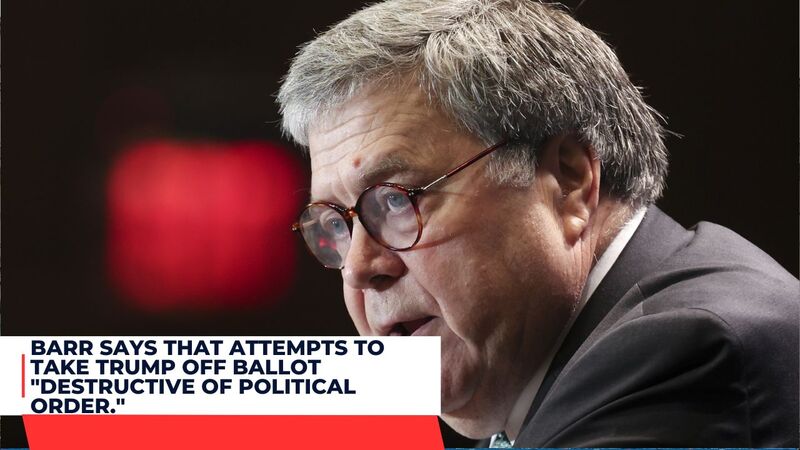Plans to remove Donald Trump from the ballot have intensified rapidly in recent weeks. Colorado Supreme Court issued an unprecedented ruling this month barring him from running for president; further challenges are ongoing in other states.
However, several secretaries of state have opposed these efforts, arguing that the 14th Amendment’s anti-insurrection clause cannot apply without court authorization.
Details
Shortly before Christmas, Colorado Supreme Court delivered a surprise ruling that Donald Trump is ineligible to run for public office there under Section 3 of the 14th Amendment, which prevents anyone who took an oath to uphold it from holding public office if they engage in “insurrection or rebellion against” it. Maine elections official Shenna Bellows quickly agreed and decided that Trump is ineligible due to his efforts at overthrowing 2020 election results and instigating Jan. 6 riot at Capitol.
Since his election, there have been mounting allegations regarding Donald Trump’s eligibility to run. A group called Free Speech for People sent letters to all 50 state election officials urging them to disqualify him on grounds that he participated in an insurrection and thus should not run for office.
Some Democratic candidates for governor have supported these challenges, while many others have denounced them as politically motivated and unconstitutional. Chris Sununu, Republican governor of New Hampshire, noted that any attempt to remove Trump from the ballot “distorts every concept of constitutional due process this country has upheld for 200 years”. California Secretary of State has yet to make her position clear but could potentially resist such efforts.
The Anti-Insurrection Clause of the 14th Amendment
Passed after the Civil War ended and approved by three-fourths of states two years later, Section 3 of the 14th Amendment prohibited anyone who supported secession from holding federal office. Although most former Confederate officials were later eligible to run again under an amnesty act of 1872, several hundred still remained disqualified for service.
Now, a few states are rising to meet this challenge. On 19 December, Colorado Supreme Court ruled that Donald Trump cannot appear on their 2024 ballot under Section 3. Maine’s top election official issued similar ruling a few days later; however, their ruling is currently on hold pending appeal.
Legal dispute over Trump is focused on whether the Constitution’s “insurrection” clause, added 155 years ago, disqualifies him from public office. While long-shot, this line of argument gained steam among liberal activists and even some conservative legal scholars who saw insurrectionist elements in Trump that caused violence to erupt against the Capitol building resulting from storming it with supporters causing clashes there – however his lawyers contend Section 3 only applies to officers of the United States (a position which does not exist at present), so ultimately only the Supreme Court may rule on this issue.

The Insurrection Clause of the 14th Amendment
Though he has not been charged with insurrection, some legal experts contend that Trump’s election as president violates the insurrection clause of the Constitution. A liberal watchdog group brought one such challenge before the Supreme Court for review; Colorado and Maine courts or election officials have blocked his candidacy on grounds related to Section 3 of 14th Amendment.
This clause disqualifies candidates for public office if they swore an oath to support the Constitution but later “engaged in insurrection or rebellion against it.” Originally created to prevent former Confederates from returning to government post-Civil War, this disqualifier has rarely been invoked since.
Trump opponents claim he violated the constitution’s insurrection clause by encouraging his supporters to attack the Capitol on January 6. These legal challenges raise complex legal and historical considerations; for example, First Amendment protection protects even outrageous statements that might be considered insurrectionary in nature if true, making it impossible to prove they were made with intent to engage in it. Furthermore, no clear authority would enforce such an action – historically Congress has used insurrection clause as grounds to refuse seating members but never against a candidate for president before now.






